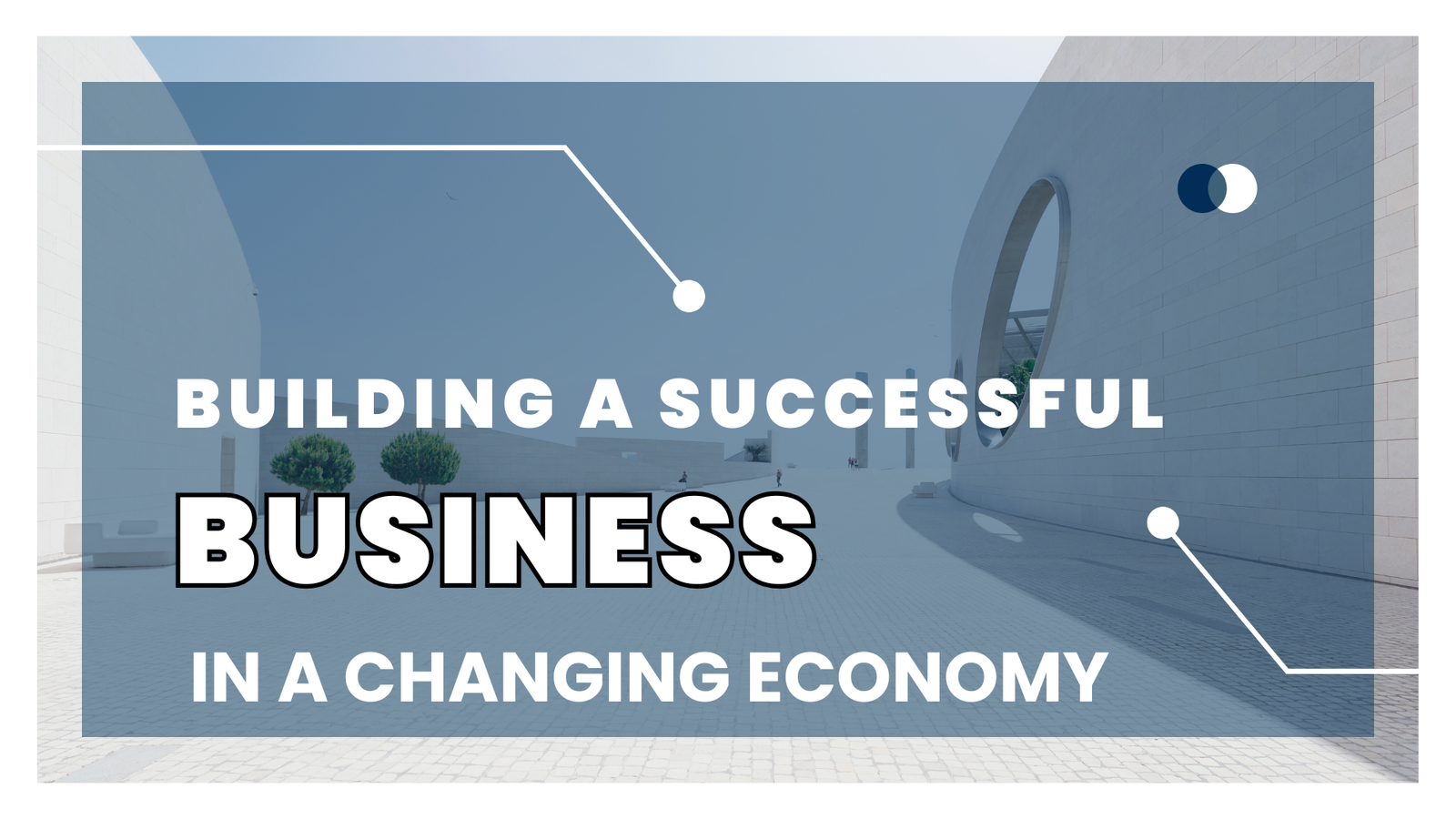
Building a Successful Business in a Changing Economy
The world economy is always changing because of new technology, politics, and market trends. For people starting new businesses or those already running one, it’s important to know how to deal with these changes. This article will show you how to build and keep a successful business in a changing economy, with simple tips and advice.
Understand Changes in the Economy:
1. Technological Advancements:
Technology is one of the large drivers in the economy today and brings both opportunity and challenge. New inventions like artificial intelligence, automation, and digital platforms can make work easier, enhance customer experiences, and create new business models. However, companies have to adapt as fast as the pace of changing technology to compete. Keeping up with the latest technological trends can make a huge difference for your business.
2. Market Trends:
Market trends are always changing with what people like, cultural changes, and what is happening around the world. Businesses that remain updated on such trends can make better predictions for changes and amend their plans in advance. Routine market research and staying abreast of changes within the industry help you spot opportunities and avoid risks.
3. Political and Regulatory Changes:
Politics and laws can impact businesses in numerous ways, like tax changes, changes in trade policies, and labor laws. Knowing the changes and the effects of the changes can help manage challenges and create new opportunities. Industry associations can be joined to stay connected with policymakers for insightful information and support.
Strategies for Building a Successful Business:
1. Flexibility and Adaptability:
Being flexible and adaptable is key in a changing economy. Businesses that can quickly respond to changes can better handle uncertainties and take advantage of new opportunities. This means being open to new ideas, ready to change strategies, and always looking for ways to improve and innovate.
Implementing Agile Practices:
Agile practices include being flexible, collaborative, and continuously improving. Businesses break up projects into small tasks, regularly checking the progress, to allow for easy changes in case new information comes into the light.
2. Diversification
Diversification can help cut down on the risks and introduce new sources of income. One can lower reliance on one source of income and become more resilient in a changing economy by introducing new products or services, venturing into new markets, or trying different business models.
Exploring New Markets:
Entering new markets, whether at home or in other countries, can provide growth opportunities and can dampen the blow of economic fluctuations in one part of the country. Do some market research, identify possible markets, and approach the markets from a local need and preference basis.
3. Financial Management:
Good financial management is crucial for business success, especially in a changing economy. Keeping a healthy cash flow, managing debt, and planning for future investments can help ensure your business remains financially stable and can handle economic changes.
Creating a Financial Plan:
A clear financial plan can guide your business’s financial health. This includes setting financial goals, making budgets, predicting cash flow, and regularly checking financial performance. Having a financial plan can help you make smart decisions and respond quickly to economic changes.
4. Customer Focus:
It is therefore important in the changing economy to build good relations with customers. Understanding the customer’s needs and meeting them is one way to provide good service and eventually, loyalty will result in business performance and longevity.
Leverage Customer Feedback:
Active seeking and responding to customer feedback helps improve products, services, and customer experience. This may involve surveys, online reviews, or engaging with customers on social media. You build trust and loyalty by listening to your customers and making the necessary improvements.
5. Innovation and Continuous Improvement:
Innovation is the lifeblood of competitive advantage in any changing economy. Always seeking means to improve the products, services, and operations can assist you in always being ahead, meeting the changing needs of customers, and more.
Innovation Culture Encouragement:
Fostering a culture of innovation involves stimulating creativity, sponsoring new ideas, and rewarding efforts. That can be facilitated by offering opportunities for professional growth, creating space for collaboration, and recognizing innovative work.
Conclusion:
Building a successful business in a changing economy requires flexibility, adaptability, and a proactive approach. By embracing new technology, staying informed about market trends and regulatory changes, and using strategies like diversification, financial management, and customer focus, businesses can navigate uncertainties and find new opportunities. Continuous innovation and improvement can further enhance your business’s resilience and long-term success. With the right mindset and strategies, you can thrive in a dynamic and ever-changing economic landscape.
FAQs:
1. How can small businesses adapt to technological changes?
Small businesses can adapt by staying updated on the latest technologies, investing in useful tools and software, and training employees to use new technologies effectively.
2. What are some low-cost ways to diversify a business?
Low-cost diversification strategies include offering related products or services, entering niche markets, and exploring partnerships or collaborations.
3. How can businesses manage cash flow during economic downturns?
Businesses can manage cash flow by cutting expenses, negotiating better payment terms with suppliers, and focusing on collecting outstanding payments.
4. What are some effective ways to gather customer feedback?
Effective ways to gather feedback include surveys, online reviews, social media engagement, and direct customer interactions.
5. How can businesses foster a culture of innovation?
Fostering innovation involves encouraging creativity, supporting new ideas, offering professional development opportunities, and recognizing innovative efforts.
6. Why is market research important for business success?
Market research helps businesses understand customer preferences, identify trends, and make informed decisions, leading to better products, services, and strategies.